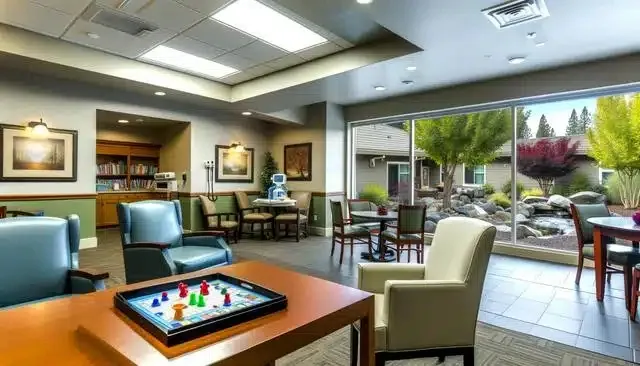How Much Will It Cost to Live in a Nursing Home?
Nursing homes are an essential part of the healthcare ecosystem, offering specialized care that many families struggle to provide at home. However, understanding the costs associated with nursing homes can be complex. This article aims to provide a comprehensive overview of the potential expenses, focusing on private home care for the elderly, various care home options, and home care centers.

Understanding Nursing Home Costs
When considering nursing home care, one of the first questions that arise is the cost. Various factors influence these expenses, making it crucial to understand the components involved.
Nursing homes typically charge for:
· Accommodation
· Meals
· Personal care
· Medical services
· Specialized therapy
The location of the facility also significantly impacts the cost, with urban areas generally being more expensive than rural settings. Additionally, the level of care required by an individual plays a critical role in determining the overall cost.
To be well-prepared financially, families should research and consider these elements to make informed decisions about nursing home care.
Private Home Care for the Elderly
Private home care is another option for elderly individuals who prefer to stay in familiar surroundings. This type of care offers personalized services tailored to the individual’s needs.
Cost Factors for Private Home Care
The costs associated with private home care can vary widely depending on:
· The level of care required
· The number of hours needed
· The qualifications of the caregivers
Families can expect to pay for services such as:
· Daily living assistance
· Medication management
· Companionship
The flexibility of private home care allows for a tailored approach, ensuring that the elderly receive the care they need without sacrificing the comfort of their own home.
Exploring Various Care Home Options
There are multiple types of care homes available, each offering different levels of care and service. These include:
1. Assisted Living Facilities
Provide a combination of housing, support services, and healthcare for those who need some assistance but can still maintain a level of independence.
2. Memory Care Units
Specialize in care for individuals with memory-related conditions such as dementia, offering a secure and structured environment.
3. Skilled Nursing Facilities
Offer a higher level of medical care for those with significant health issues who require round-the-clock supervision.
Costs for these facilities can differ, often depending on the level of medical and support services provided. It’s important to evaluate the specific needs of the elderly and choose a facility that aligns with those requirements.
Evaluating Home Care Centers
Home care centers provide a blend of in-home support and community-based services. These centers typically offer:
· Meals
· Transportation
· Medical care
Cost Considerations
The costs associated with home care centers vary based on:
· The type of services required
· The frequency of use
Some centers offer day programs, where the elderly can:
· Participate in activities
· Receive meals
· Return home in the evening
This can be a cost-effective solution for families. Evaluating these options involves considering the needs of the elderly, their lifestyle preferences, and the associated costs to ensure the best possible care arrangement.
Budgeting for Long-Term Care
Planning for long-term care is essential to managing the costs associated with nursing homes and other elder care options.
Funding Sources to Consider
Families should explore different funding options, such as:
· Long-term care insurance – Helps offset some expenses, but policy details should be reviewed carefully.
· Savings and personal funds – Ensuring financial preparation for future care needs.
· Government assistance (Medicaid) – Provides financial support for those who qualify.
Creating a Financial Plan
A comprehensive financial plan that includes these elements can help mitigate the financial impact of long-term care, ensuring that the elderly receive the necessary support without imposing undue financial strain on their families.
Conclusion
The costs of nursing homes and elder care options vary based on factors such as care type, location, and level of service needed. By researching available options and planning financially, families can find the most suitable and affordable care solutions for their elderly loved ones.
Related Issues
Senior Apartments in 2025
Senior apartments are enticing options, as the living cost is lower, the benefits are ample, and the maintenance is minimal. Plus, it has all the perks of independent living without all the hassle.
What Are the Home Care Packages in the United States?
Home care packages in the United States provide essential support for seniors and individuals with disabilities, allowing them to receive care in their own homes rather than relocating to assisted living facilities or nursing homes. These packages include services tailored to meet different needs and vary in cost, platform, and safety measures. Here is a breakdown of home care packages available, how they work, their associated costs, and safety considerations.
Limited-Time Discount on CNA Courses! Enroll Now Before Prices Go Back Up
· High Demand and Job Stability: With an aging population in the U.S. and Europe, demand for CNAs is steadily increasing. Hospitals, nursing homes, and home healthcare services are in constant need of trained professionals.